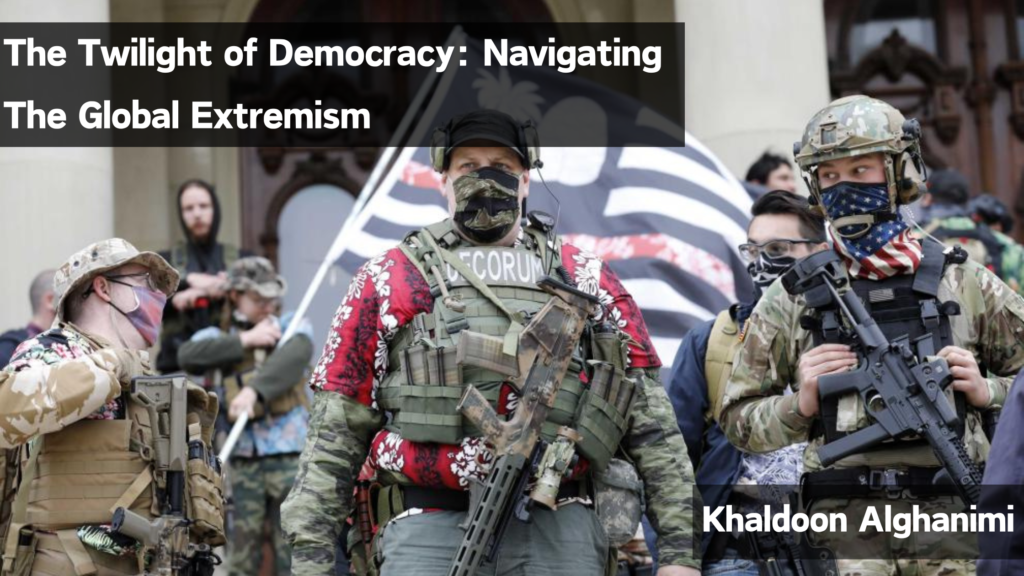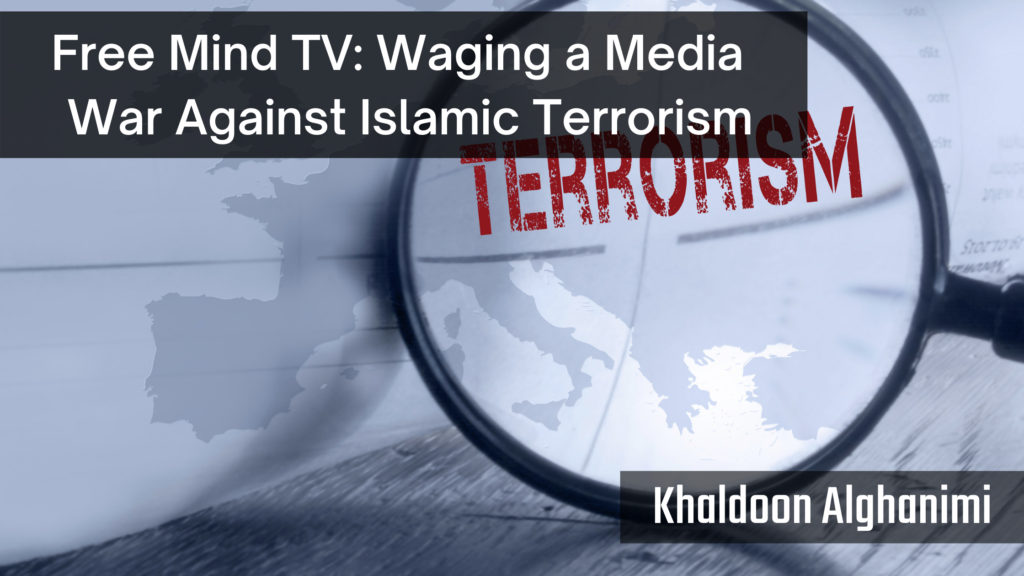Echoes of the Past: From Enlightenment to the Dark Ages
Revisiting the Dark Ages
The term “Dark Ages” is often used to describe the early medieval period in Europe, a time that followed the collapse of the Western Roman Empire around the 5th century AD. This period, extending roughly until the 10th century, has been depicted as an era of regression, where the achievements of classical antiquity were forgotten, and societal progress stalled. However, revisiting the Dark Ages requires a nuanced understanding of the complexities and transformations that occurred during these centuries.
– Fragmentation of Political Power: The fall of the Roman Empire led to the fragmentation of political authority across Europe. Without the centralized control and administrative infrastructure of Rome, Europe splintered into a mosaic of small kingdoms, principalities, and tribal lands. This fragmentation was not merely a political phenomenon but also had profound social and economic implications. Local rulers often lacked the resources or the inclination to maintain the roads, aqueducts, and public buildings that had been hallmarks of Roman civilization, leading to a decline in urban life.
– Economic Downturn and Social Transformation: The economic structures of the Roman Empire, which had facilitated trade across the Mediterranean and beyond, crumbled. The resulting downturn led to a more localized, agrarian economy, with a reduced scope for trade and commerce. This shift had a lasting impact on European society, embedding feudal relationships that would define the medieval social order. Peasants worked the land for local lords, who in turn owed allegiance to more powerful overlords or kings, creating a hierarchy that was both economic and military.
– Absence of Scientific and Cultural Advancements: The period known as the Dark Ages is often characterized by a perceived absence of scientific and cultural advancements. The vibrant intellectual life of the Greco-Roman world, with its philosophers, scientists, and poets, seemed to dim. However, this view oversimplifies the situation. While the era may not have witnessed the same level of intellectual achievements as the periods that preceded or followed it, learning and knowledge were not entirely extinguished. Monasteries, in particular, played a crucial role in preserving and copying classical texts, and in some cases, they became centers of learning and scholarship.
– The Role of Fear and Insularity: A defining characteristic of the Dark Ages was the prioritization of security over exploration and openness. The constant threat of invasion—by Vikings from the north, Magyars from the east, and Saracens from the south—prompted communities to turn inwards. Fortified castles and walled cities became symbols of this era, physical manifestations of the fear that permeated society. This insularity had significant consequences for the exchange of ideas. The vibrant interactions of the Roman era, which had seen ideas, goods, and people moving freely across the empire, were replaced by a more insular mindset, wary of the outside world.
– Reevaluating the Dark Ages: While the Dark Ages may be seen as a period of decline from the perspective of certain historical achievements, it was also a time of transformation and adaptation. Societies reorganized themselves in the face of economic, social, and external pressures, laying the groundwork for the eventual resurgence of Europe. The era’s challenges spurred innovations in agriculture, governance, and military technology. Moreover, the period set the stage for the Renaissance, when Europe would look back to the classical past with renewed interest and vigor, leading to an explosion of art, science, and exploration that would reshape the world.
Revisiting the Dark Ages, thus, reveals a complex picture not just of loss and decline but also of human resilience and adaptability in the face of profound challenges. This period serves as a historical mirror, reminding us that progress is not linear and that societies can find pathways to renewal even after times of darkness.
Enlightenment as a Beacon
The Enlightenment, often referred to as the Age of Reason, emerged in the 17th and 18th centuries as a radiant beacon following the relative obscurity of the Middle Ages. It was a period marked by a seismic shift in thinking across Europe and later, the world. Philosophers, scientists, writers, and thinkers propelled humanity into a new era of intellectual exploration and discovery, challenging the dogmas of the past and advocating for a society based on reason, evidence, and humanist values.
– Intellectual Curiosity and Scientific Exploration: The Enlightenment was characterized by an insatiable curiosity about the natural world and the human condition. Thinkers like Isaac Newton and Galileo Galilei laid the groundwork for modern physics and astronomy, using the scientific method to understand the laws that govern the universe. This period saw significant advancements in every field of science, from biology and chemistry to physics and geography, expanding humanity’s knowledge and understanding of the world.
– Cultural Flowering and the Arts: The Enlightenment also witnessed a flourishing of the arts and literature, reflecting the period’s broader intellectual currents. Writers such as Voltaire, Jean-Jacques Rousseau, and Mary Wollstonecraft challenged societal norms and critiqued political institutions through their works, advocating for social reform and the improvement of human conditions. The arts, including music, painting, and architecture, were infused with the spirit of the age, emphasizing clarity, order, and balance.
– Foundational Philosophies for Modern Democracies: Perhaps the most enduring legacy of the Enlightenment is its contribution to the political philosophies that underpin modern democratic societies. Thinkers like John Locke and Montesquieu developed ideas about government, rights, and the social contract that have become foundational to contemporary understandings of democracy and governance. The Enlightenment’s emphasis on liberty, equality, and fraternity inspired revolutions and reforms around the world, from the American Declaration of Independence to the French Revolution, laying the groundwork for the modern nation-state and its institutions.
– The Belief in the Dignity and Rights of Individuals: Central to the Enlightenment was a profound belief in the inherent dignity and worth of every individual. This period saw the articulation of concepts that would become central to human rights discourse, including freedom of speech, religious tolerance, and the abolition of slavery. These ideas challenged the traditional hierarchies and authorities of the time, promoting a vision of society where individuals could determine their destinies and contribute to the common good.
Modern Threats to Enlightenment Ideals
The Enlightenment’s legacy, characterized by an unwavering commitment to reason, scientific inquiry, and the inherent worth of every individual, faces significant challenges in today’s global landscape. The resurgence of right-wing movements and the proliferation of extremist ideologies across the political spectrum have ignited concerns reminiscent of darker times in human history. These modern threats to Enlightenment ideals are multifaceted, impacting democratic societies at their core and prompting a reevaluation of the path forward.
– Rejection of Scientific Consensus: One of the most alarming trends is the growing disregard for scientific consensus on critical issues such as climate change, vaccination, public health measures, and even the shape of earth. This rejection is often fueled by political and ideological agendas that prioritize short-term gains over long-term welfare. The Enlightenment’s valorization of empirical evidence and rational discourse as the foundation for decision-making is challenged by movements that propagate misinformation and elevate personal belief over objective facts. This trend not only undermines efforts to address global challenges but also erodes public trust in scientific institutions.
– Undermining of Human Rights: The rise of authoritarian and populist figures and regimes has been accompanied by an erosion of human rights protections. Policies targeting minorities, refugees, and dissenters have become increasingly common, echoing the intolerance and persecution that the Enlightenment sought to overcome. These policies are justified through rhetoric that frames certain groups as threats to national security or cultural identity, thus normalizing discrimination and violating the principle of universal dignity and rights. The retreat from the Enlightenment’s humanistic values threatens the fabric of inclusive, democratic societies.
– Restricting the Free Exchange of Ideas: A hallmark of the Enlightenment was the championing of open debate and the free exchange of ideas as essential components of progress and understanding. However, current trends towards censorship, both state-imposed and self-enacted within institutions and social media platforms, compromise this ideal. The polarization of public discourse, where opposing viewpoints are not just debated but demonized, stifles constructive dialogue and innovation. In some instances, the fear of backlash or offense has led to a chilling effect on academic freedom and creative expression, hindering societal advancement and mutual understanding.
– The Rhetoric of Fear and Division: The exploitation of fear and division by political leaders and movements stands in stark opposition to the Enlightenment’s emphasis on fraternity and solidarity. By emphasizing differences and fomenting distrust among communities, these actors weaken the social cohesion necessary for democratic societies to thrive. The demonization of the ‘other,’ whether based on ethnicity, religion, or political belief, resurrects tribalism and undermines the Enlightenment’s vision of a rational, interconnected world.
The Global Renaissance at Risk
The global rise of right-wing movements has sparked debates on immigration, national identity, and the role of government in protecting cultural heritage versus embracing diversity. These discussions often reveal deeper societal anxieties about change and loss, echoing the historical retreat into insular, authoritarian regimes during the Dark Ages. As these movements gain political power, there is a genuine concern that the hard-won freedoms and scientific advancements of the past centuries may be at risk.
Case Studies: Modern Parallels
– The Assault on Science (Climate Change Denial): The rejection of climate change evidence represents a significant regression reminiscent of the Dark Ages’ suppression of scientific discovery. Despite overwhelming scientific consensus, certain political leaders and movements, often supported by right-wing ideologies, have dismissed climate change as a hoax. This denialism has substantial implications for environmental policy and global efforts to address climate change. It undermines scientific research and hampers the implementation of necessary measures to mitigate environmental degradation. The case of climate change denial exemplifies how the rejection of scientific knowledge for political gain can lead societies away from enlightenment and progress.
If we do a historical comparison, just as the church once denied heliocentrism to maintain its worldview and power, modern political movements deny climate science, fearing economic and political repercussions that may arise from acknowledging and addressing the issue. This parallel illustrates how progress can be stifled when political agendas suppress scientific truth.
– Human Rights Under Siege: The rise of right-wing movements has often been accompanied by policies and rhetoric that undermine human rights, particularly concerning refugees and immigrants. Drawing parallels with historical periods of religious and ethnic persecution, such as the Inquisition or pogroms, modern policies that marginalize or demonize immigrants echo the darkest periods of human history. This includes separating families at borders, indefinite detentions, and the scapegoating of entire communities for societal issues, which not only violates individual rights but also contravenes the principles of dignity and compassion central to the Enlightenment.
The Enlightenment introduced the concept of universal human rights, emphasizing the inherent value and equality of all individuals. By contrast, the treatment of refugees and immigrants by some contemporary governments reflects a retreat from these principles, showcasing a troubling inclination towards exclusion and intolerance.
– Cultural and Academic Censorship: In certain regions, there has been a concerning rise in attempts to censor academic discourse, literature, and even historical facts, drawing disturbing parallels to the book burnings and intellectual oppression of the Dark Ages. This censorship is often motivated by political or ideological agendas, aiming to suppress dissenting voices and control the narrative on issues such as race, gender, and colonial history. Such actions not only infringe on freedom of expression but also impede societal progress by limiting access to diverse perspectives and knowledge.
The Enlightenment era celebrated the pursuit of knowledge, encouraging intellectual exploration and the questioning of established norms. The recent trends towards censorship and the vilification of academic inquiry represent a stark deviation from these ideals, suggesting a movement away from enlightened thought towards a more regressive stance on knowledge and education.
The Ideological Schism
The current ideological schism that is unfolding globally pits visions of open, inclusive societies against those yearning for an idealized past characterized by homogeneity and strict societal “order.” This division is more than a mere political disagreement; it represents a fundamental clash over the trajectory of human civilization and the core values that should guide it. The legacy of the Enlightenment, with its emphasis on reason, individual rights, and the pursuit of knowledge, is being directly challenged by movements that seek to retreat into nationalism, xenophobia, and authoritarianism.
– The Battle for Civilization’s Future: This ideological battle is being fought in the halls of governments, on the streets, and across digital platforms worldwide. On one side are those advocating for the protection of human rights, the advancement of scientific understanding, and the cultivation of cultural diversity as sources of strength and innovation. On the other are movements that exploit economic insecurities, cultural anxieties, and fears of change to promote a return to an exclusionary, rigid social order. This schism not only threatens the social fabric of individual nations but also poses a challenge to the idea of global cooperation and understanding.
– The Enlightenment’s Legacy at Stake: The Enlightenment brought forth the notion that human beings could shape their destinies through the application of reason and science, advancing beyond the superstitions and constraints of the past. The ideals of liberty, equality, and fraternity emerged as guiding principles for building societies that valued the individual while fostering a sense of common purpose. Today, the resurgence of ideologies that reject these principles in favor of divisive, fear-based politics calls into question the hard-won gains of previous generations. The very foundations of democratic governance, the pursuit of scientific truth, and the recognition of universal human rights are at risk.
Looking Forward: A Call to Remember
The historical lessons of the Dark Ages, when fear and ignorance led to centuries of stagnation, contrast sharply with the Enlightenment’s era of discovery and progress. These periods remind us that the advance of human civilization is not linear or inevitable; it requires constant vigilance, effort, and commitment to the ideals of openness and inclusivity. Championing education is crucial in this endeavor, as it equips individuals with the tools to critically evaluate information, understand complex issues, and engage in constructive dialogue.
Fostering dialogue across ideological divides is essential for bridging the gap between competing visions of society. Such dialogue should aim not only to debate but also to find common ground and mutual understanding, recognizing the dignity and worth of every person. Upholding the universal values of dignity and respect, even in the face of profound disagreements, is fundamental to maintaining the social cohesion necessary for societies to thrive.
As we stand at this critical juncture, facing the rising tide of extremism and polarization, the imperative to remember and act upon the lessons of history has never been more urgent. The choice between regression into a new Dark Age or progression towards a more enlightened, inclusive future is stark. By reaffirming our commitment to the principles of the Enlightenment—reason, liberty, and the pursuit of knowledge—we can navigate the challenges of the present and lay the groundwork for a future that honors the full potential of humanity. This is not merely an academic exercise but a vital call to action to ensure that the light of progress and understanding continues to shine, dispelling the shadows of intolerance and fear.



